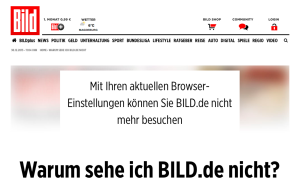
By David Cohn
For the past 20 years, the media’s working relationship with big technology platforms like Google, Facebook, Twitter, etc. has been a Faustian bargain. Tech giants provided access to the largest audience in human history (not an exaggeration) and in exchange, the media industry handed over ultimate control of their own fate. Big tech controlled the media’s understanding of analytics, KPIs, and editorial value, all while mediating their relationship with both audiences and advertisers. That strained relationship could be entirely abandoned in the coming years.
In the 1970s, environmentalists gave us the “Three R’s”—Reduce, Recycle, and Reuse—as a guiding mantra to foster a sustainable world. In a similar vein, media companies navigating the murky waters of today’s digital ocean are adopting their own “Three R’s,” as a nautical chart to steer clear of dependencies on the rocky shores of third-party platforms.
Reduce Reliance
The first “R” is a reminder that whoever breads your butter is ultimately in charge. Media organizations need to ask whether that should be their owned audience or rented through some third-party vendor. In other words, publishers need to reduce their reliance on third-party platforms like X or Meta for traffic and audience reach, which can be wholly controlled by cloaked algorithms. Recent changes, such as X’s UI decision to remove media headlines from links or Facebook’s algorithm update in June 2023, remind us of the ever-shifting tides these platforms present. Algorithms change and if you’re not careful, you could find yourself sailing against them. Having control over your brand and audience relationship is paramount.
Recycle Data: Treasure Maps in Plain Sight
The second “R,” Recycle, calls for savvy utilization of first-party data, an often underutilized asset. Collected responsibly and ethically, this data can create customized experiences that enrich audience engagement—and lead to greater revenue opportunities.
In the past, publishers let social media companies like Facebook collect all personal data and trusted them for reliable metrics in return. At times, however, it turned out information publishers were getting back was completely inaccurate. Today, media companies will lean in and create a reason for users to give first-party data directly. You see this already. Email newsletters means the publisher gains your email address. Media organizations that launch SMS text channels yield cellphone numbers. Publishers that better track click-throughs will obtain intelligent segmentation. Put those together and you can build a more intricate story for advertisers who are also looking to practice the first R and reduce their spend on platforms.
New technology platforms like Threads may commit to not amplifying news, but who says publishers can’t amplify their connection directly with the audience? Such a strategy creates a virtuous circle: engagement produces data, and data leads to more customized engagement. The Cookiepocolypse is upon us and audiences will benefit from the increased privacy. But that doesn’t mean engaged audiences won’t share personal data with specific trusted publishers who will enhance their content or advertising experience.
Reuse: Tried-and-True Revenue Streams
The final “R,” Reuse, is about rediscovering what media companies already excel at—traditional revenue streams like premium advertising relationships (over programmatic), subscriptions, events, and affiliate commerce. In an era where Meta parts ways with its “Head of News,” relying on proven avenues like these gives stability, keeps the publisher in control of their own destiny, and removes concerns about whether or not Facebook will drop its program to fund news partnerships again.
Charting the Course
Embracing these “Three R’s” isn’t merely a philosophical exercise; it’s a call to action for publishers (and arguably every digital company is a publisher these days).
As media companies chart their course through the digital landscape, guided by the “Three R’s” of Reducing reliance, Recycling data, and Reusing traditional revenue streams, the future of news and consumer readership hinges on a pivotal choice: independence or dependency.
A fortified approach not only ensures a more authentic and tailored reader experience but also protects the media’s role as a trusted source of information, unswayed by the whims of tech platforms. The stakes are high; failure to adapt could lead not just to a diminished role of media in the public discourse, but the evaporation of a public discourse altogether.
(11)







